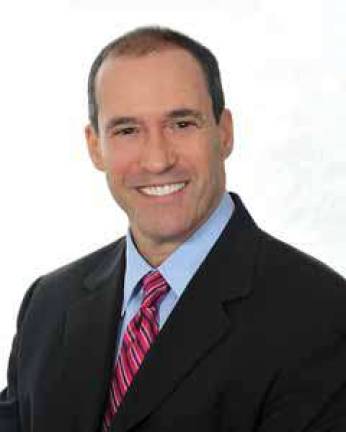Urologist Says PSA is Still Important for Prostate Screening

If you ask my cousin Sonny, the only reason he is alive today is because of free bagels and a PSA test. "Our local hospital was offering a free men's prostate screening test, and afterward they served free coffee, bagels and donuts," he said. "My friends and I would hang around, compare our numbers and socialize, so a group of us made this a yearly thing." Sonny's numbers were always low, until one year when they weren't. He followed up with his urologist for a biopsy and found that he had prostate cancer. He made the decision to have his prostate removed after discussing the options with his doctor and others, and has now been 13 years cancer-free. One in six men in this country will be diagnosed with prostate cancer in his lifetime; it is one of the most common causes of cancer in men. Prostate cancer is usually slow growing and initially remains confined to the prostate gland. When I was in medical training, I knew a family practice doctor who was in great shape, was healthy, exercised regularly and died at the age of 45 of prostate cancer, leaving behind a young family. He had not had a screening test and his cancer advanced quickly, and he was dead within a few months. Prostate cancer may not have signs or symptoms in the early stages. Cancer that is advanced may cause problems urinating, decreased force in the stream of urine, blood in the urine, blood in the semen, swelling in the legs, discomfort in the pelvic area and bone pain. One of the ways to detect prostate cancer is through the combination of a rectal exam and a PSA test. PSAs, or prostate-specific antigens, appear in the blood in elevated amounts in the presence of cancer, so the blood test is used as a screening tool. However, the test has come under fire in the press and by certain organizations who feel that it is unnecessary because it produces some false positive results. These are common-only about one in four men who have a positive PSA test turns out to have prostate cancer. Things that can increase PSA levels are benign prostate enlargement, benign prostatic hyperplasia or prostate infection. Dr. Aaron Katz, author of The Definitive Guide to Prostate Cancer, a board certified urologist and chairman of the department of urology at Winthrop University Medical Center, said, "We are detecting a lot more prostate cancer because of the PSA screening. The issue is that we are detecting a lot of cancers that probably don't need to be treated, and men are still undergoing surgery and radiation; unfortunately, some of the men do wind up with side effects like erectile dysfunction and urinary incontinence." The U.S. Preventative Services Task Force now recommends against PSA screening, because "they felt that PSA screening tests did not save enough lives to make it worthwhile and the cost to society was high," Katz said. He disagrees with the findings and feels that without the test, we are missing an opportunity to find cancer early on. "The doctors who sit on that task force-none of them are urologists, none of them are even cancer specialists," Katz said. "They are looking at a couple of flawed studies and making recommendations. The head of the task force is a pediatrician from Texas." The Mayo Clinic recommends offering PSA screening and rectal exams to men age 50-75 years and to men 45-75 years with a positive family history of prostate cancer. Katz recommends "diet, exercise and supplements to try to prevent men who have early stage prostate cancer from going on to treatment. We recommend men eliminate red meat and fried food, get on pomegranate extract pills, anti-inflammatory herbals, fish oils and lycopene pills and do aerobic exercise. This is a very successful program. "Men need to get screened for prostate cancer by the age of 50," he continued. "I think men need to be informed about the result and what it means. Men need to take on a more active holistic life style to prevent prostate cancer. You need to take care of your body."